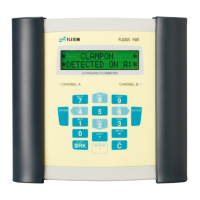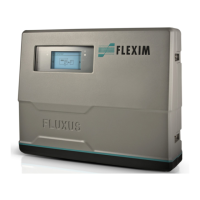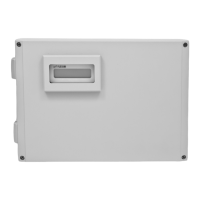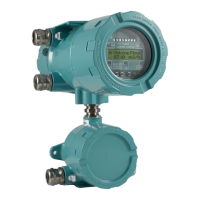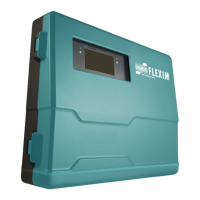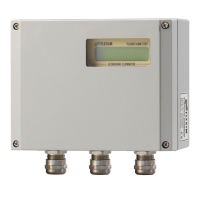3 General principles
3.3 Acoustic penetration FLUXUS F60*
2017-10-16, UMFLUXUSF60xV5-0EN
22
3.3 Acoustic penetration
The pipe has to be acoustically penetrable at the measuring point. The acoustic penetra-
tion is reached when pipe and fluid do not attenuate the sound signal so strongly that it is
completely absorbed before reaching the second transducer.
The attenuation caused by the pipe and the fluid depends on:
• kinematic viscosity of the fluid
• proportion of gas bubbles and solids in the fluid
• deposits on the inner pipe wall
• pipe material
The following requirements have to be met at the measuring point:
• the pipe is always completely filled
• no solid deposits in the pipe
• no bubble formation in the pipe
Observe the following notes on the selection of the measuring point:
Horizontal pipe
Select a measuring point where the transducers can be mounted laterally on the pipe, al-
lowing the sound waves to propagate horizontally in the pipe. Thus, solids on the bottom
of the pipe or gas bubbles in the pipe's upper part are prevented from influencing the
propagation of the signal, see Fig. 3.10 and Fig. 3.11.
Even bubble-free fluids can form gas bubbles when the fluid expands, e.g., before
pumps and after great cross-section extensions.
Fig. 3.10: Recommended transducer
mounting position
Fig. 3.11: Disadvantageous transducer
mounting position
